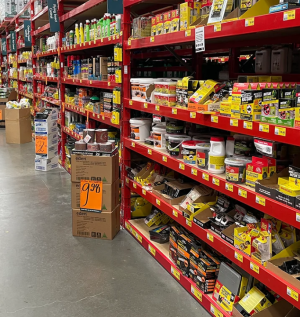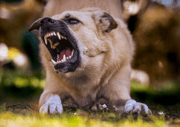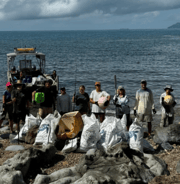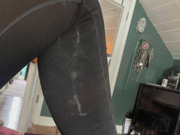Keep your homes poison-free: Experts urge Aussie government to ban 'toxic' home product
By
Danielle F.
- Replies 11
For many Aussies, a trip to the local supermarket or hardware store is a vital part of a weekly routine.
When shopping for home products, consumers believe that items in Coles, Woolworths, Bunnings, and Mitre 10 are safe for everyone's homes and families.
However, one popular product sold across the country is quietly wreaking havoc in people's houses.
That's the alarming reality behind some of the rat and mouse poisons people use to keep their homes pest-free.
Several pest control products, such as rat bait, contain second-generation anticoagulant rodenticides (SGARs).
According to experts, this class of poison could be far more dangerous than most shoppers realise.
More than 280 leading veterinarians, doctors, scientists, farmers, and conservationists have demanded urgent action towards these items.
The call? A nationwide ban on the sale of these 'highly-toxic' baits to everyday consumers.
'There's a perception that because you can buy it on the shelf, it's safe to use, and if you use it in accordance with the directions, there's not going to be a problem,' Dr Holly Parsons from BirdLife Australia prefaced.
'But that's not the case.'
In fact, many experts are shocked to learn that these products are sold right alongside less harmful alternatives and natural traps.
What's the problem with SGARs?
SGARs were developed in the 1980s to outsmart rats and mice that had become resistant to older types of poison.
These new poison products cause internal bleeding in pests.
However, these poisons do not break down quickly in the environment.
When a rat or mouse eats the bait and is then eaten by another animal, the poison accumulates in the predator's body.
Over time, this could lead to a slow, painful death, not just for the pests but even for indoor pets.
Every year, wildlife carers and volunteer vets deal with sick and dying birds, mammals, and reptiles that have unwittingly consumed poisoned prey.
Due to this, SGARs are now being considered for listing as a Key Threatening Process under the Environment Protection and Biodiversity Conservation (EPBC) Act 1999.
This act is the same legislation that protects Australia's endangered species.
Pets, especially dogs and cats, could fall victim if they eat a poisoned rodent or get into the bait itself.
The symptoms include lethargy, weakness, and unexplained bleeding.
Without prompt veterinary care, it could cause death.
Why are these products still on shelves?
Despite mounting evidence of harm, SGARs remain available in Australia.
Other countries have already taken action against these poisonous products.
The United States, Canada, and the European Union have all introduced strict restrictions to limit the use of SGARs and protect non-target species.
'Australia is lagging behind, allowing the continued use of SGARs in a way that is putting our wildlife and pets at risk,' the experts' open letter pointed out.
The open letter, which had 281 signatories, urged the Australian Pesticides and Veterinary Medicines Authority (APVMA) to:
Bunnings has updated packaging to make it clear when SGARs are present.
The hardware giant also added QR codes in their stores' rodent control aisle for more information about SGARs.
'The rodenticide products we sell are in line with guidance from the Federal regulator, the APVMA, and we will continue to follow its advice in this area,' a Bunnings spokesperson shared in a statement.
'This includes any requirements confirmed by the APVMA when the Anticoagulant Rodenticides Chemical Review is finalised.'
Here's a breakdown of how rodenticides poison animals, as explained by Vet Skye:
Source: Vet Skye/YouTube
On the other hand, Woolworths highlighted that rodenticides are essential for people dealing with infestations, especially in rural areas.
However, the supermarket giant also carries ultrasonic repellents, traps, and SGAR-free baits.
Meanwhile, Mitre 10's parent company, Metcash, stated that it's working on educational materials and is expanding its range of wildlife-friendly products in the future.
Yet, for many campaigners, these cautionary steps are not enough.
They pointed to the success of recent campaigns, such as the removal of animal glue traps from Bunnings, as proof that retailers can lead the way if they choose to.

Have you ever had a close call with rodent poison at home? Do you have tips for keeping pests at bay without harming your pets? We would love to hear your stories and pest control suggestions in the comments section below.
When shopping for home products, consumers believe that items in Coles, Woolworths, Bunnings, and Mitre 10 are safe for everyone's homes and families.
However, one popular product sold across the country is quietly wreaking havoc in people's houses.
That's the alarming reality behind some of the rat and mouse poisons people use to keep their homes pest-free.
Several pest control products, such as rat bait, contain second-generation anticoagulant rodenticides (SGARs).
According to experts, this class of poison could be far more dangerous than most shoppers realise.
More than 280 leading veterinarians, doctors, scientists, farmers, and conservationists have demanded urgent action towards these items.
The call? A nationwide ban on the sale of these 'highly-toxic' baits to everyday consumers.
'There's a perception that because you can buy it on the shelf, it's safe to use, and if you use it in accordance with the directions, there's not going to be a problem,' Dr Holly Parsons from BirdLife Australia prefaced.
'But that's not the case.'
In fact, many experts are shocked to learn that these products are sold right alongside less harmful alternatives and natural traps.
What's the problem with SGARs?
SGARs were developed in the 1980s to outsmart rats and mice that had become resistant to older types of poison.
These new poison products cause internal bleeding in pests.
However, these poisons do not break down quickly in the environment.
When a rat or mouse eats the bait and is then eaten by another animal, the poison accumulates in the predator's body.
Over time, this could lead to a slow, painful death, not just for the pests but even for indoor pets.
Every year, wildlife carers and volunteer vets deal with sick and dying birds, mammals, and reptiles that have unwittingly consumed poisoned prey.
Due to this, SGARs are now being considered for listing as a Key Threatening Process under the Environment Protection and Biodiversity Conservation (EPBC) Act 1999.
This act is the same legislation that protects Australia's endangered species.
Pets, especially dogs and cats, could fall victim if they eat a poisoned rodent or get into the bait itself.
The symptoms include lethargy, weakness, and unexplained bleeding.
Without prompt veterinary care, it could cause death.
Why are these products still on shelves?
Despite mounting evidence of harm, SGARs remain available in Australia.
Other countries have already taken action against these poisonous products.
The United States, Canada, and the European Union have all introduced strict restrictions to limit the use of SGARs and protect non-target species.
'Australia is lagging behind, allowing the continued use of SGARs in a way that is putting our wildlife and pets at risk,' the experts' open letter pointed out.
The open letter, which had 281 signatories, urged the Australian Pesticides and Veterinary Medicines Authority (APVMA) to:
- Withdraw SGARs from public sale and restrict their use to licensed professionals.
- Ban their use outside of buildings, where wildlife is most at risk.
- Promote safer alternatives, such as electronic traps and non-anticoagulant baits.
- Develop new rodent management strategies that prioritise non-chemical solutions.
- Mandate monitoring of SGAR impacts on wildlife.
- Establish buffer zones around sensitive ecological areas.
- Create a threat abatement plan to tackle rodenticide contamination in the environment.
Bunnings has updated packaging to make it clear when SGARs are present.
The hardware giant also added QR codes in their stores' rodent control aisle for more information about SGARs.
'The rodenticide products we sell are in line with guidance from the Federal regulator, the APVMA, and we will continue to follow its advice in this area,' a Bunnings spokesperson shared in a statement.
'This includes any requirements confirmed by the APVMA when the Anticoagulant Rodenticides Chemical Review is finalised.'
Here's a breakdown of how rodenticides poison animals, as explained by Vet Skye:
Source: Vet Skye/YouTube
On the other hand, Woolworths highlighted that rodenticides are essential for people dealing with infestations, especially in rural areas.
However, the supermarket giant also carries ultrasonic repellents, traps, and SGAR-free baits.
Meanwhile, Mitre 10's parent company, Metcash, stated that it's working on educational materials and is expanding its range of wildlife-friendly products in the future.
Yet, for many campaigners, these cautionary steps are not enough.
They pointed to the success of recent campaigns, such as the removal of animal glue traps from Bunnings, as proof that retailers can lead the way if they choose to.
Key Takeaways
- Over 280 animal and health experts have signed an open letter calling for a nationwide ban on second-generation anticoagulant rodenticides (SGARs) legally sold at major retailers.
- SGARs, developed to combat rat resistance to earlier poisons, persist in the environment and cause secondary poisoning of non-target animals, including household pets.
- Experts argued that Australia has been lagging behind countries like the United States, Canada, and the EU, which have already introduced significant restrictions against SGARs.
- Retailers emphasised that they are acting within Australia's current legal guidelines but have started introducing clearer labelling and promoting non-toxic pest control alternatives.








